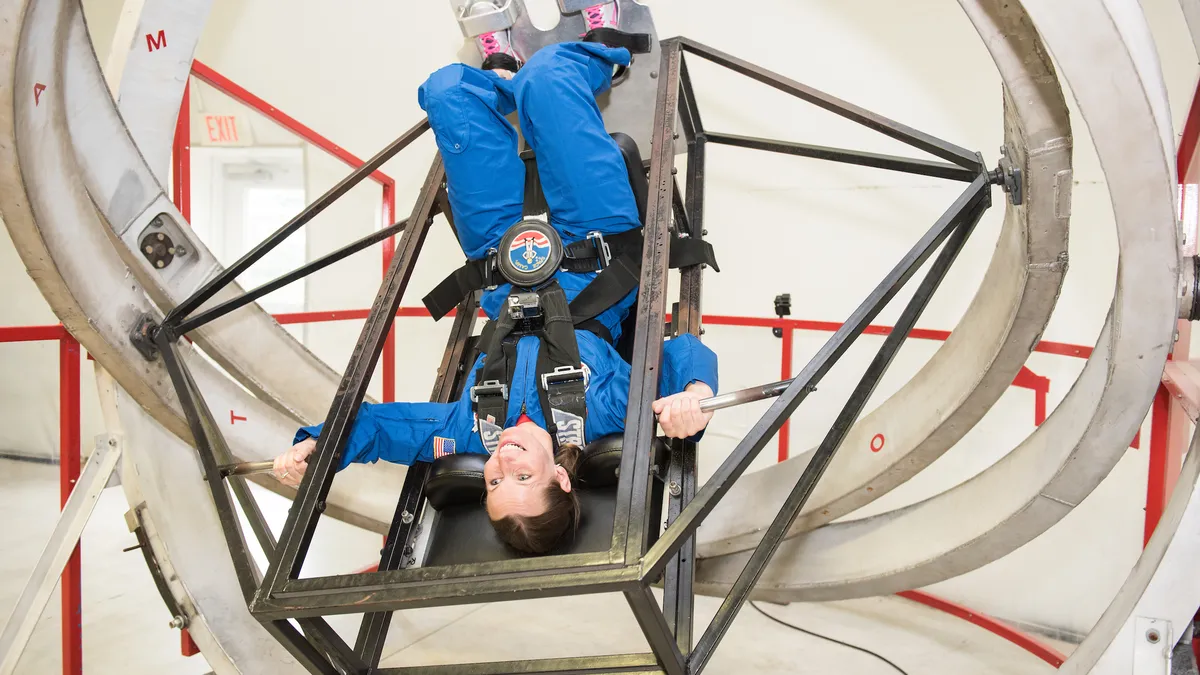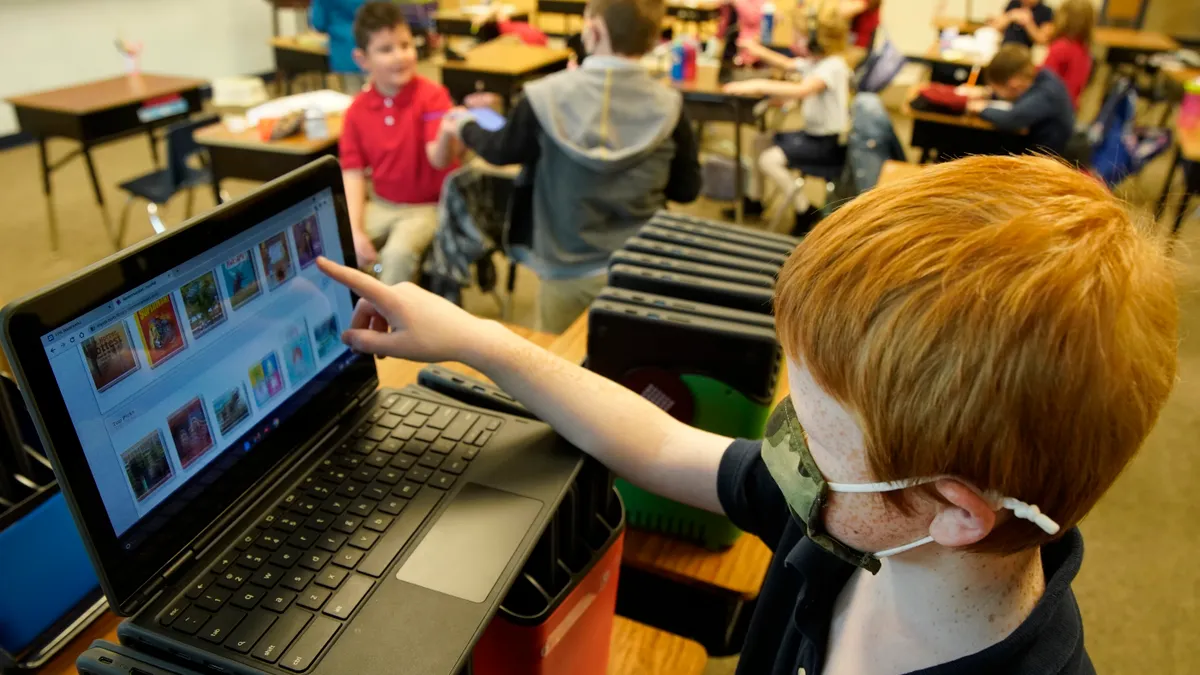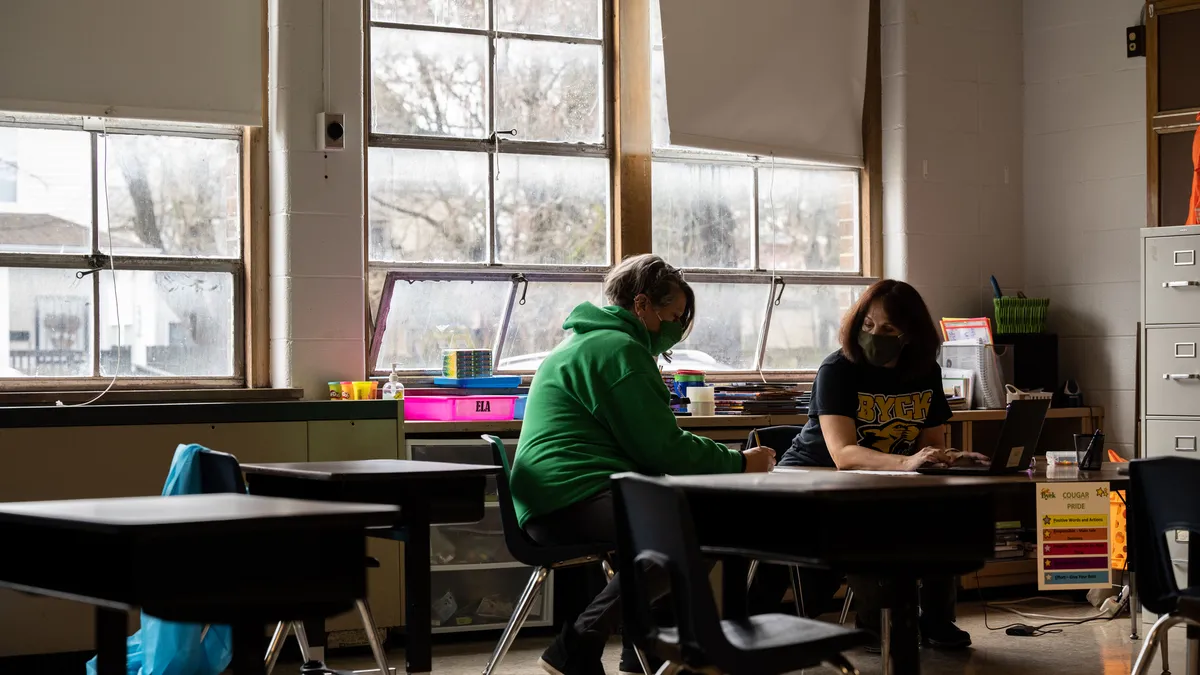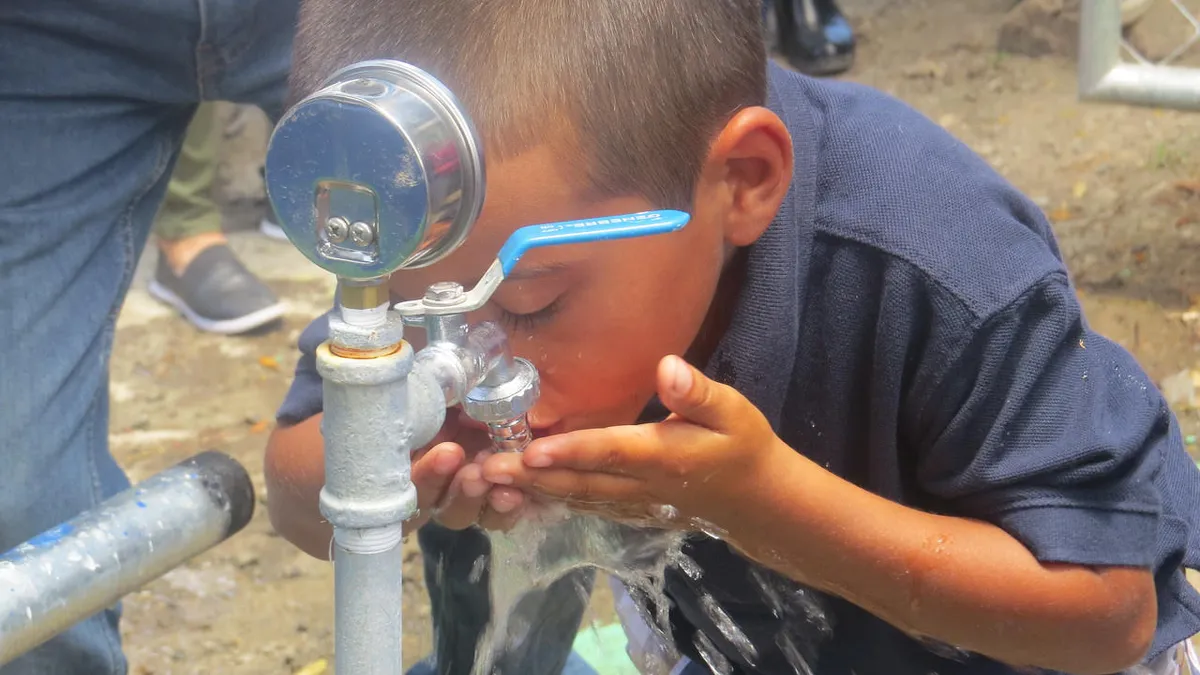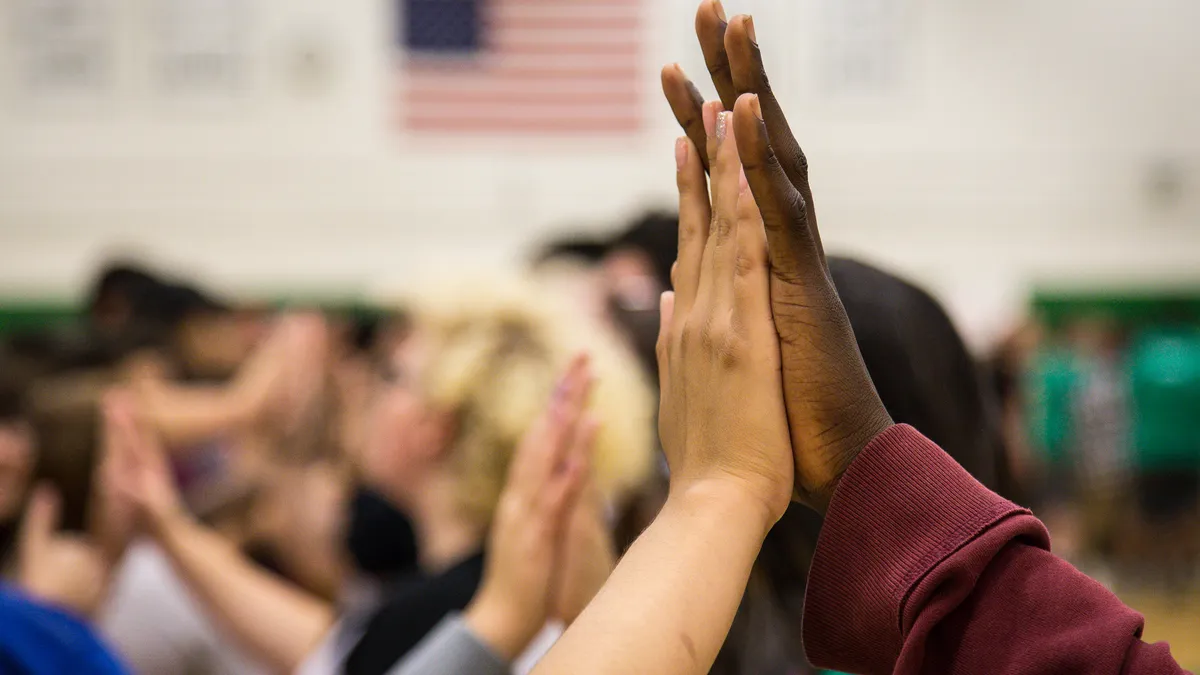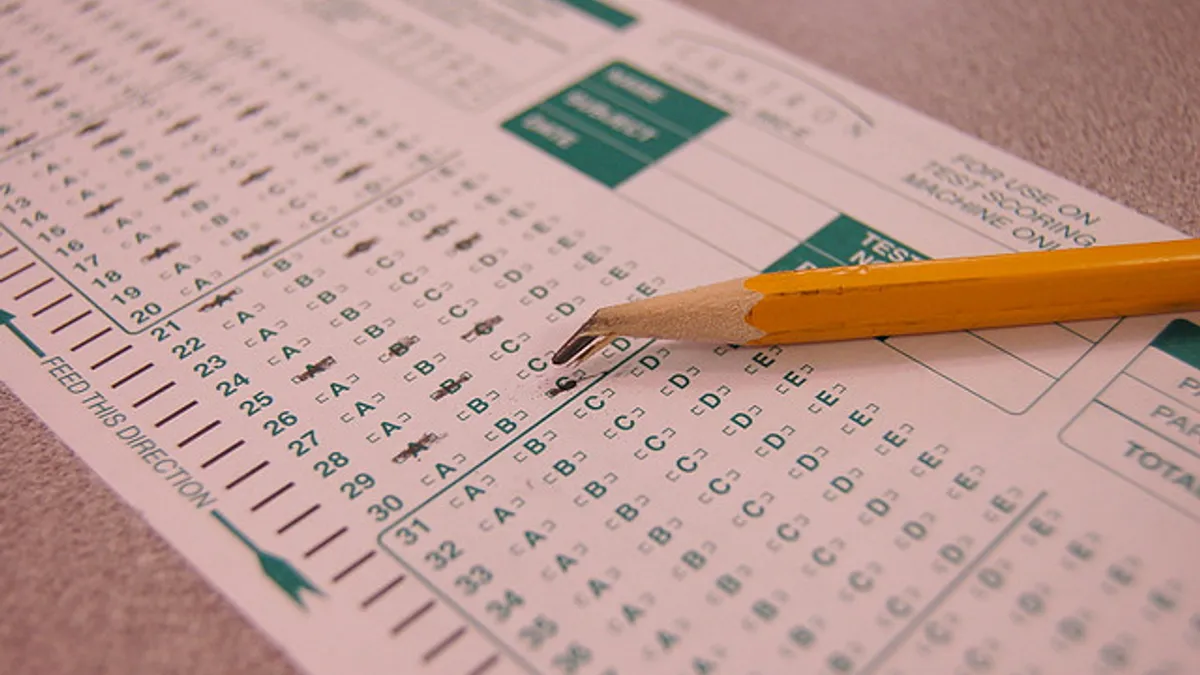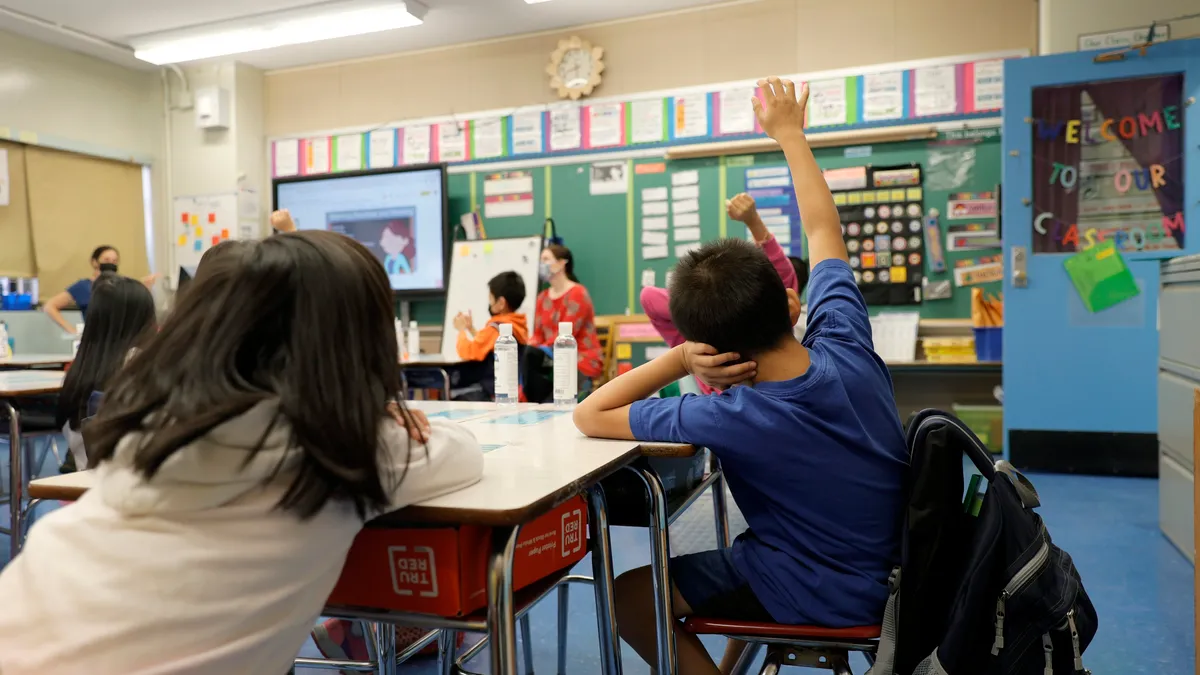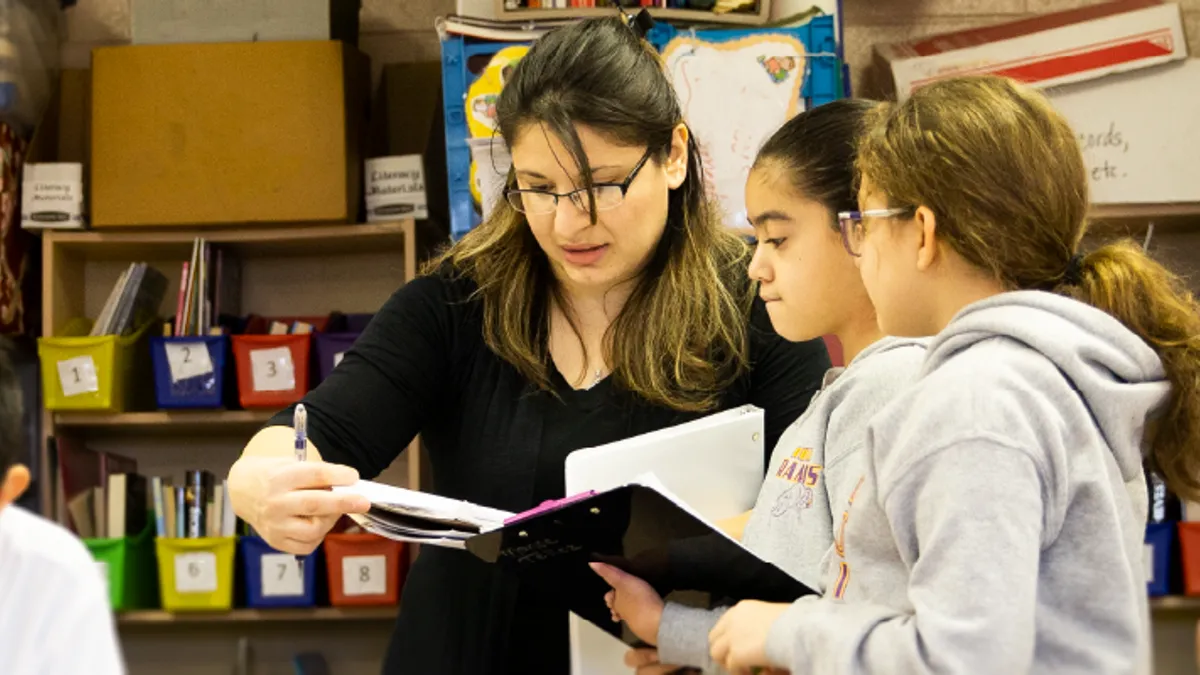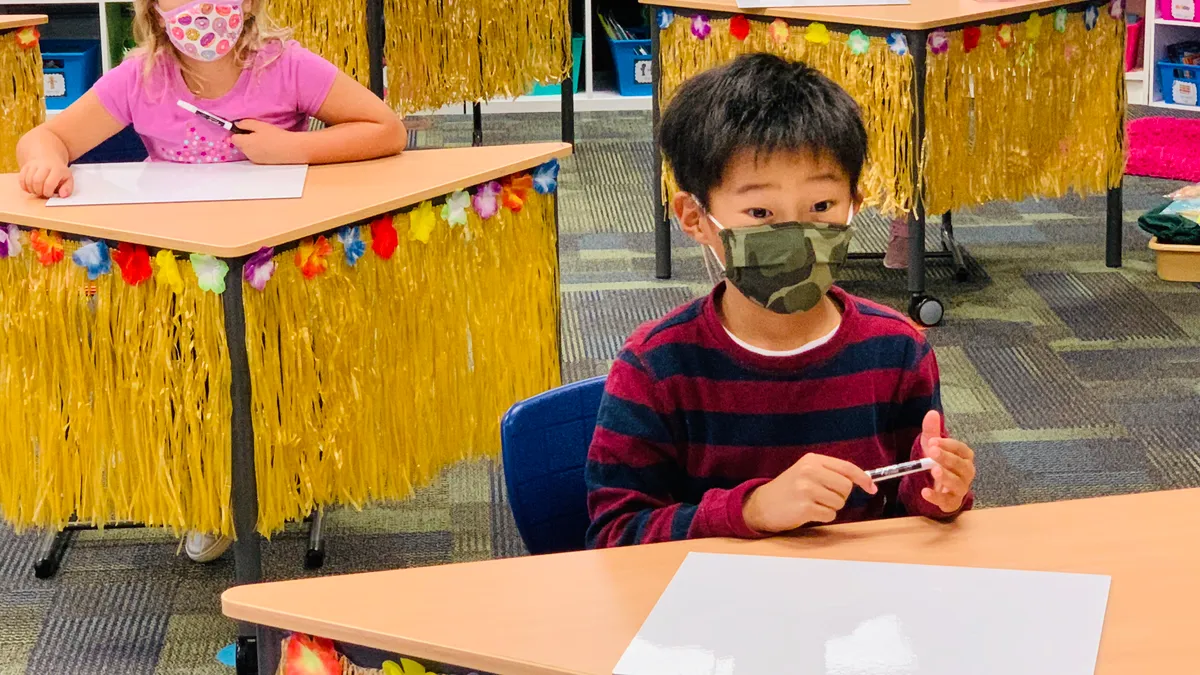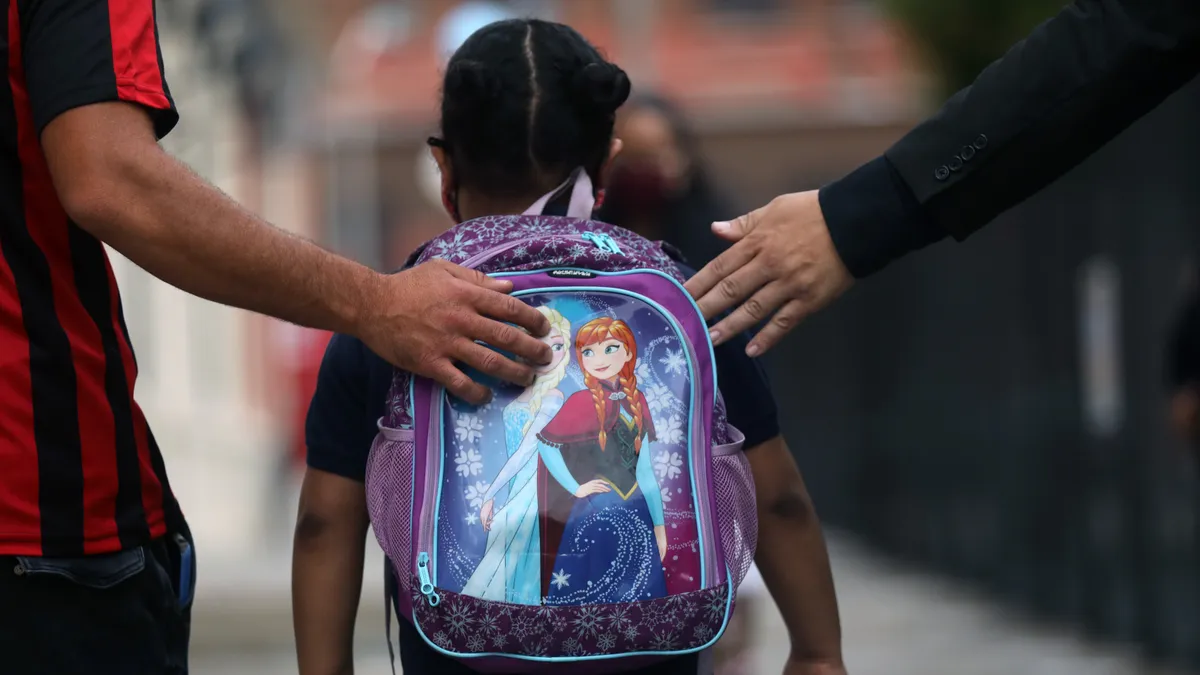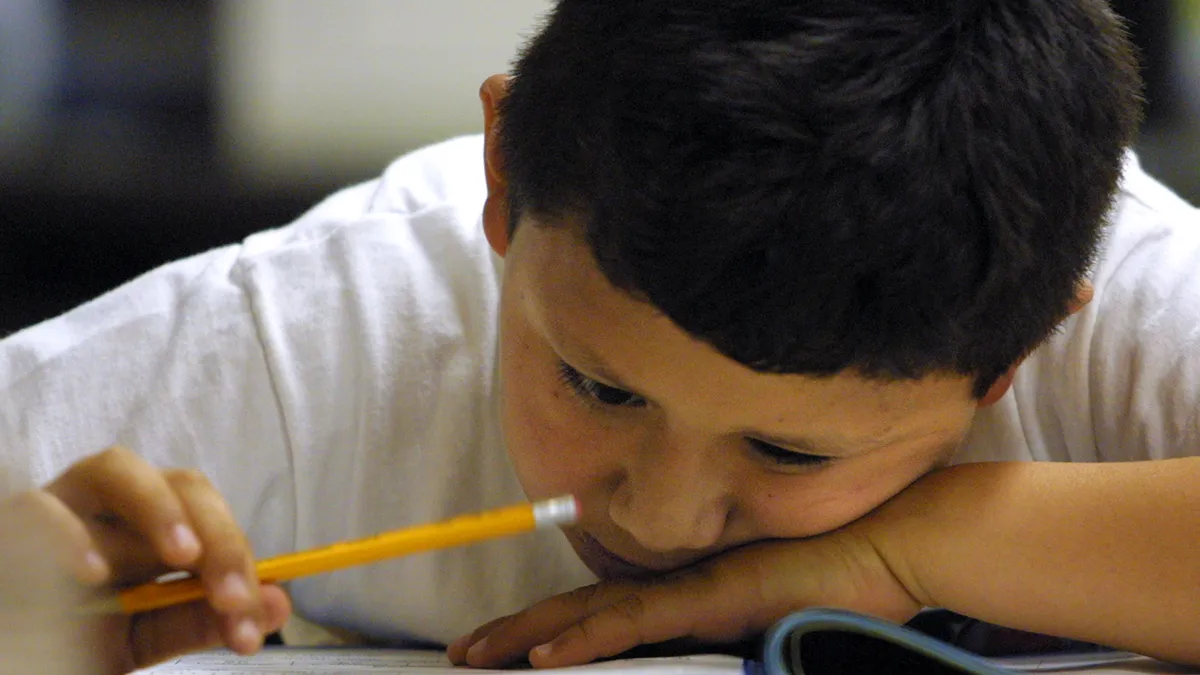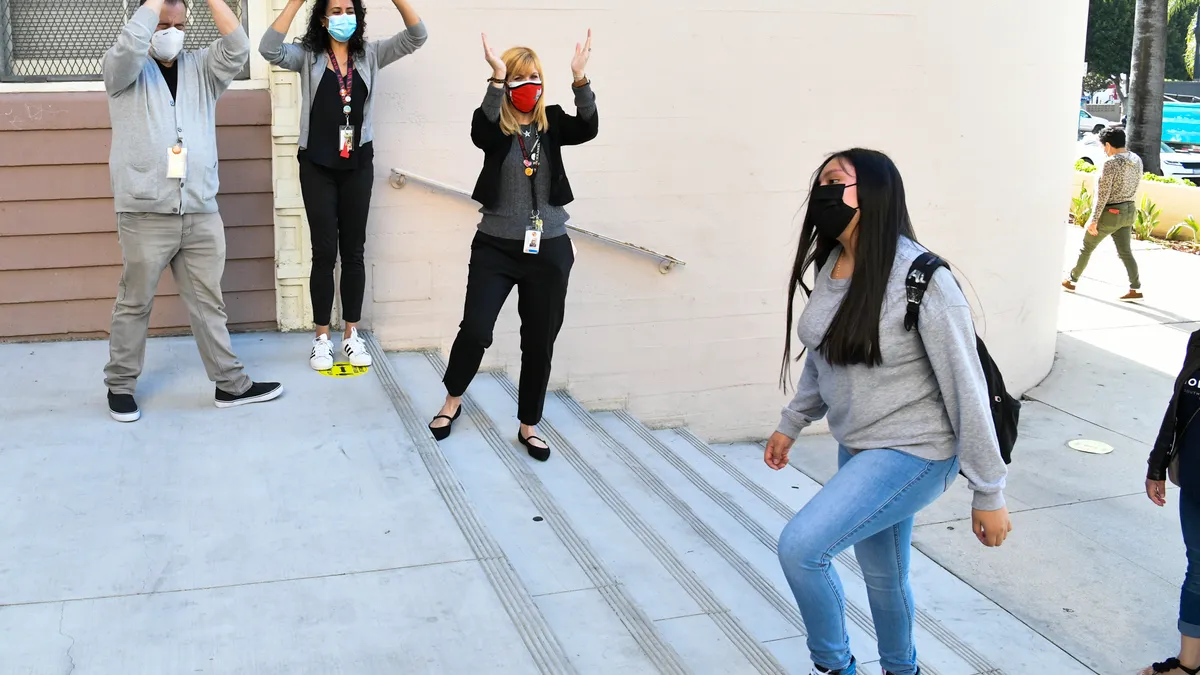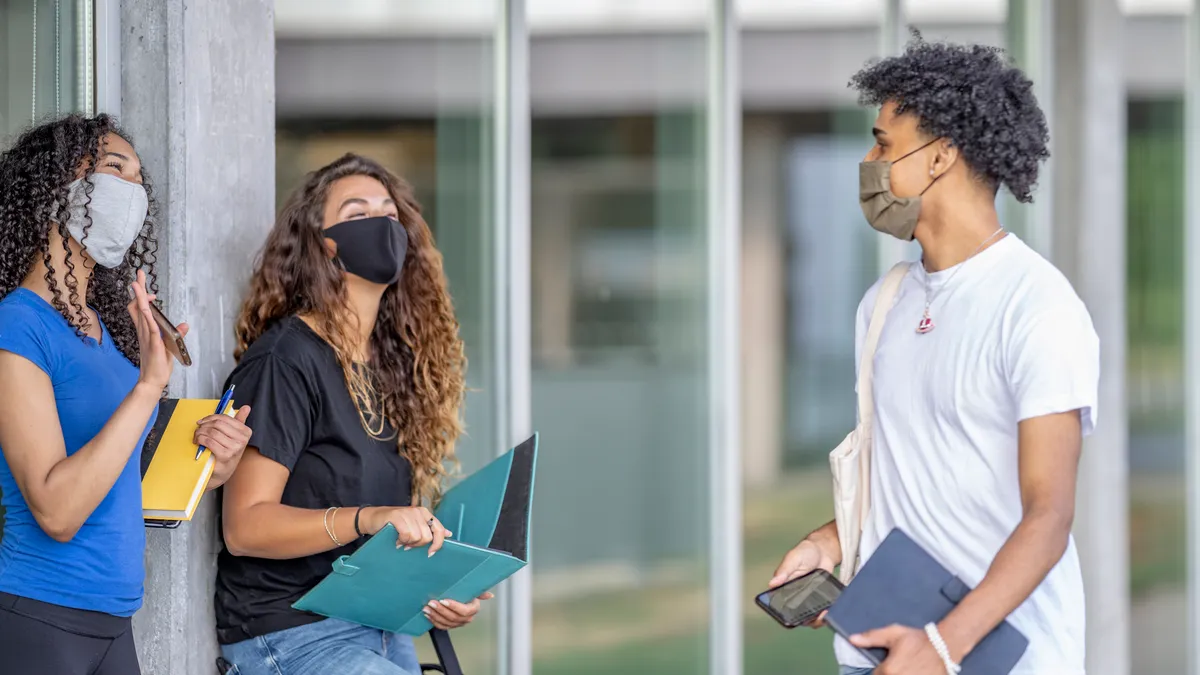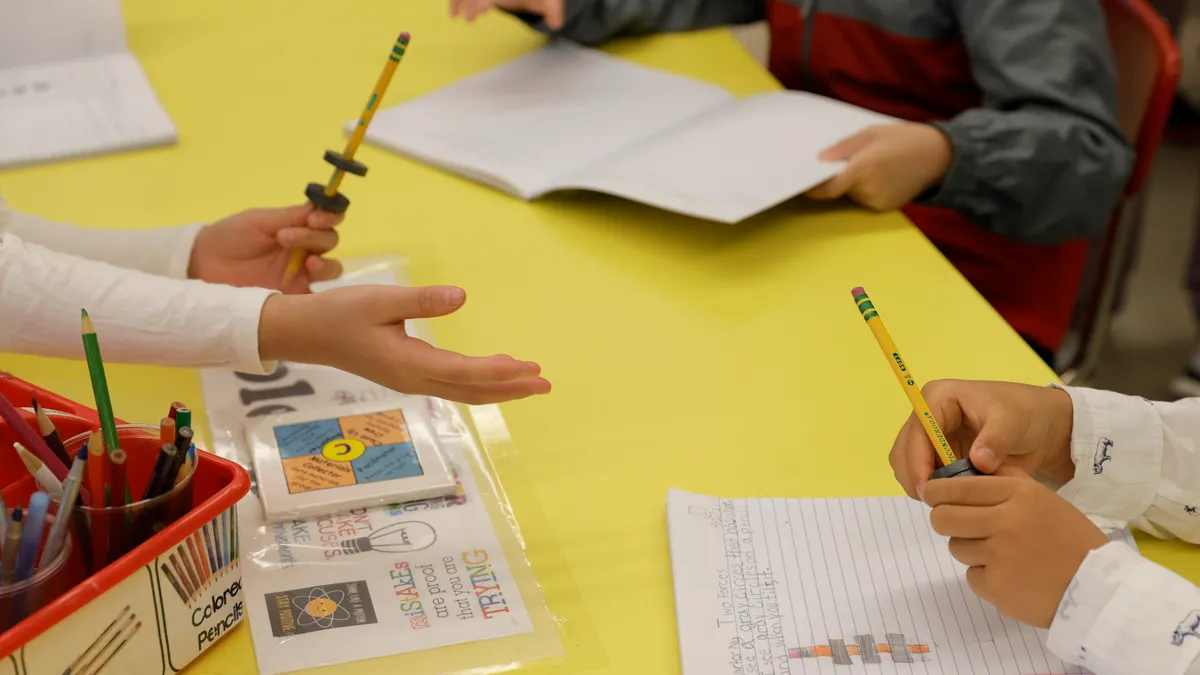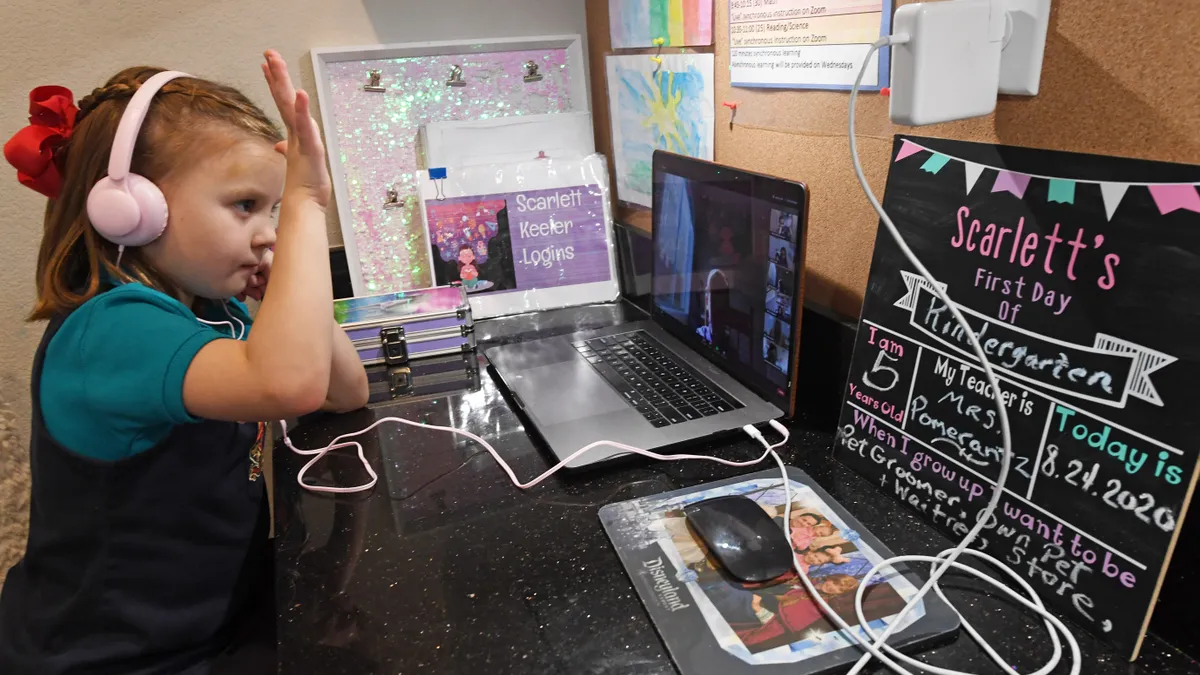Curriculum: Page 30
-
Want to boost STEM, SEL engagement? Look to the stars
A North Little Rock School District teacher uses space-related hands-on projects to demonstrate how failures and frustrations lead to learning.
By Kara Arundel • Nov. 10, 2021 -
Building opportunities for small wins into big assignments can keep students motivated
Maintaining a sense of accomplishment on the path to a larger goal can strengthen students' confidence, motivation and executive function skills.
By Lauren Barack • Nov. 10, 2021 -
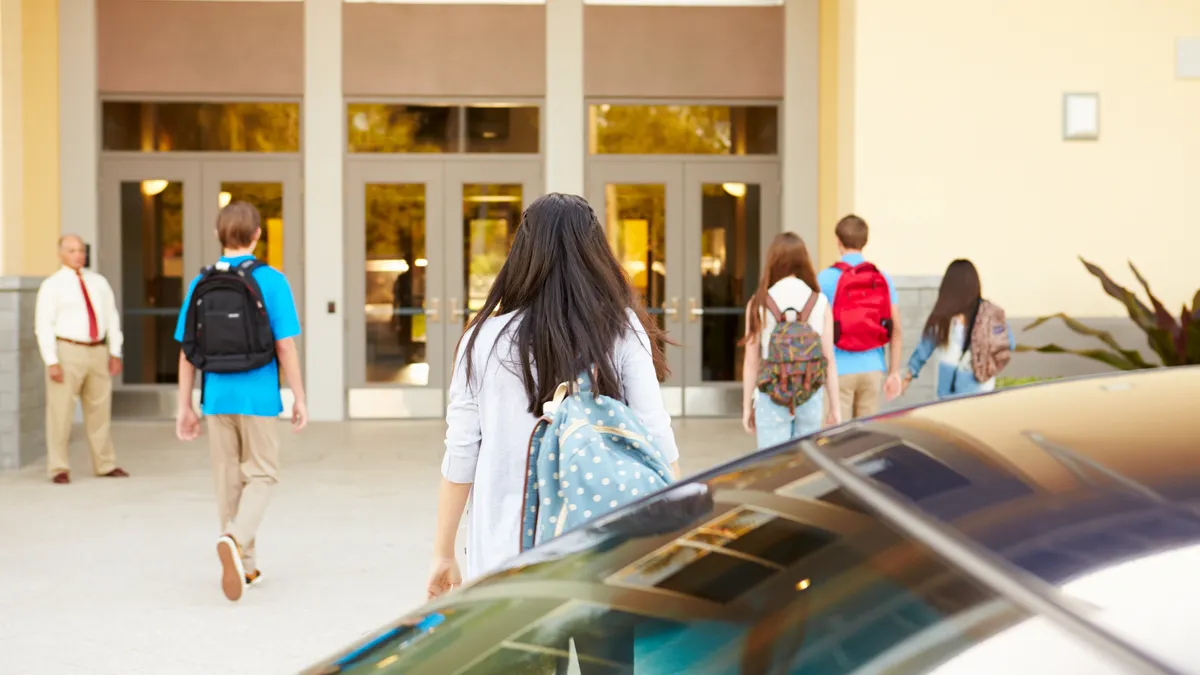 Explore the Trendline➔
Explore the Trendline➔
 Stock Photo via Getty Images
Stock Photo via Getty Images Trendline
TrendlineTop 5 stories from K-12 Dive
K-12 Dive has gathered some a selection of our best coverage from 2024 so far as a one-stop resource on the trends to watch in the months ahead.
By K-12 Dive staff -
Personalizing PD can strengthen curricular initiatives
Educators can apply what they've learned from targeted professional development not just in their own teaching, but also in peer learning scenarios.
By Lauren Barack • Nov. 3, 2021 -
How real-world missions offer inroads to space science across disciplines
Using the upcoming James Webb Space Telescope launch and Artemis moon mission, educators can make space science tangible, from STEM to art.
By Lauren Barack • Nov. 3, 2021 -
Even virtually, students in one program continue solving global challenges
The pandemic forced Global Brigades' student volunteers to work virtually to support community projects, but the move ultimately expanded access.
By Kara Arundel • Nov. 2, 2021 -
What did OECD find in its first-ever survey on social-emotional skills?
On average, 15-year-olds show lower social-emotional skills than their 10-year-old peers, regardless of gender or social background.
By Roger Riddell • Nov. 1, 2021 -
Research spotlights strategies to improve career and technical ed
Two reports advise states facilitate collaboration among K-12, postsecondary and the workforce — and suggests roles intermediaries can play.
By Shawna De La Rosa • Oct. 29, 2021 -
2021 testing participation varies widely — what will data mean for districts?
While testing experts are optimistic amid high participation in some states, they urge caution in interpretation, particularly at the local level.
By Naaz Modan • Oct. 29, 2021 -

 McElroy, Andrew. Retrieved from Unsplash.
McElroy, Andrew. Retrieved from Unsplash.
Special Olympics program helps schools get unified on inclusivity
Districts are weaving the Unified Champion Schools initiative into classrooms and extracurriculars, engaging students in embracing their differences.
By Lauren Barack • Oct. 27, 2021 -
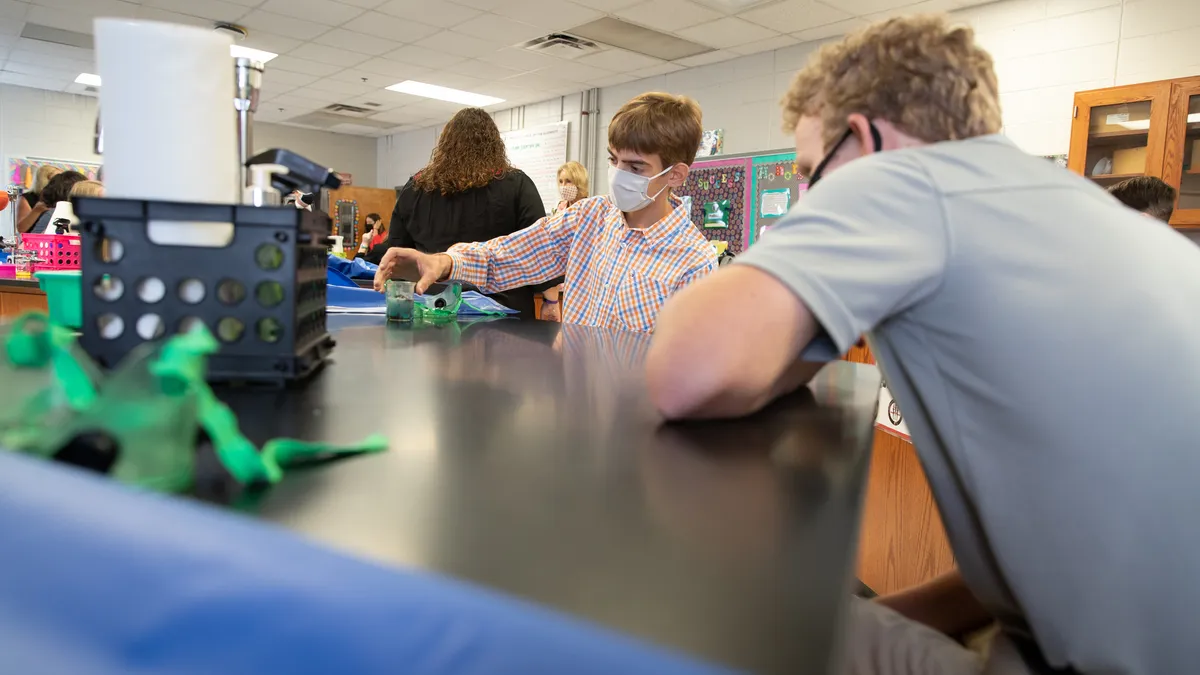
 Retrieved from Department of Education on September 29, 2020
Retrieved from Department of Education on September 29, 2020
PBL can blossom environmental awareness across curricula
Project-based approaches can help students apply and examine the real-world impacts of a concept like climate change across subject areas.
By Lauren Barack • Oct. 27, 2021 -
San Antonio's 80-20 dual language program critical for bilingual population
The benefits of dual language instruction may stick with learners throughout their lives, as the approach is thought to enhance cognitive development.
By Shawna De La Rosa • Oct. 25, 2021 -
Report: Schools' role in promoting civic engagement growing more important
Committing to teaching about democracy can include opportunities for respectful, productive conversations on controversial topics, the authors write.
By Kara Arundel • Oct. 21, 2021 -
Schools with LGBTQ-inclusive sex ed on the rise
Some states mandate LGBTQ-inclusive curriculum, but with little enforcement. Schools experience pushback from some families.
By Shawna De La Rosa • Oct. 20, 2021 -
Strengthen student-teacher relationships to boost achievement
Respect, trust and "empathic listening" can have a positive effect on academic outcomes, student well-being and confidence.
By Lauren Barack • Oct. 20, 2021 -
NAEP: Trends assessment data shows lowest performers faring worse in math and reading
A widening divide between the lowest and highest performers is a systemic problem that predates the pandemic, said NCES Commissioner Peggy Carr.
By Naaz Modan • Oct. 14, 2021 -
California becomes first state to mandate ethnic studies course for graduation
Other states have made progress toward approving curricula in recent years. Some have required the subject be offered as an optional course.
By Shawna De La Rosa • Oct. 13, 2021 -
Choice, guidelines key to helping students hone public speaking skills
Helping students begin strengthening these skills in the elementary grades can increase their confidence as they advance into college or career.
By Lauren Barack • Oct. 13, 2021 -
School leaders should consider unique needs when choosing SEL programming
Analyzing data and getting input from school community stakeholders is essential to identify which model is the best fit for students.
By Shawna De La Rosa • Oct. 11, 2021 -
3 best-practice approaches for assessing students with disabilities
Results from informal and formal student assessments can help determine effective instructional strategies and individualized supports.
By Kara Arundel • Oct. 11, 2021 -
Don't overlook the power of estimation in boosting students' math skills
Helping students learn to establish parameters for where a solution should fall can boost their confidence in tackling math more broadly.
By Lauren Barack • Oct. 6, 2021 -
3 ways expanding early college curriculum benefits high schoolers
Programming can facilitate "grow your own" teacher initiatives, entry to skilled trades, and higher grad rates, benefiting students and districts alike.
By Lauren Barack • Oct. 6, 2021 -
How 2 middle schools are prioritizing SEL for teenage students
Educators in these Minnesota and Tennessee schools have integrated SEL curriculum throughout the day — with exercises included for staff, as well.
By Kara Arundel • Oct. 5, 2021 -
How K-12 schools can weave alumni back into curriculum
From student newspapers to history projects and beyond, schools can engage former students to help build learning pathways.
By Lauren Barack • Sept. 29, 2021 -
What does it mean to make schoolwork more authentic?
Making room for collaboration, multiple perspectives and real-life relevance can help students build personal connections and boost confidence.
By Lauren Barack • Sept. 29, 2021 -
Report: Geography, socioeconomics created significant variation in pandemic learning plans
Analysis of spring 2020 plans from Kansas, Nebraska, North Dakota and Wyoming finds connectivity, rurality and poverty levels were key factors.
By Shawna De La Rosa • Sept. 29, 2021

